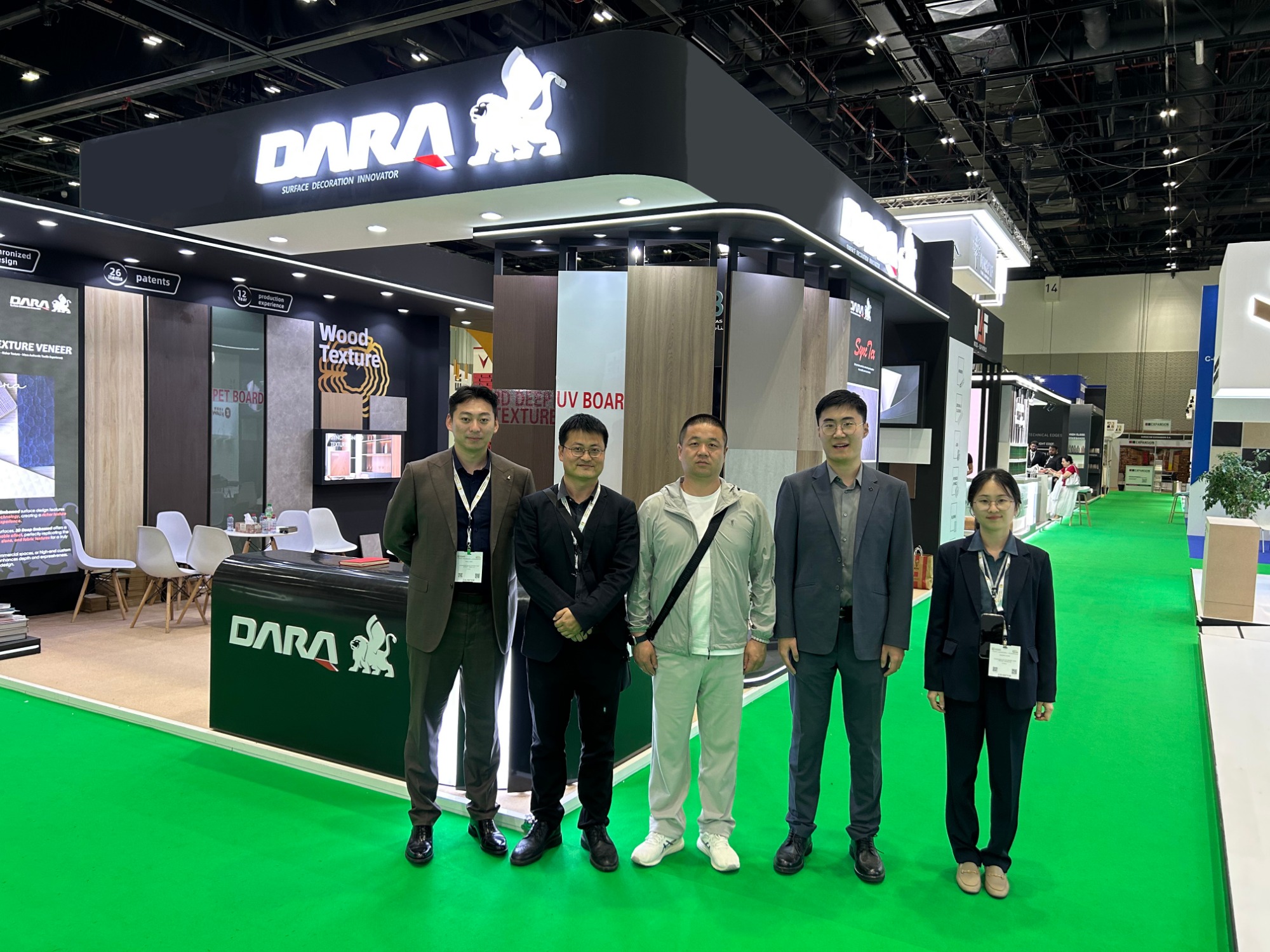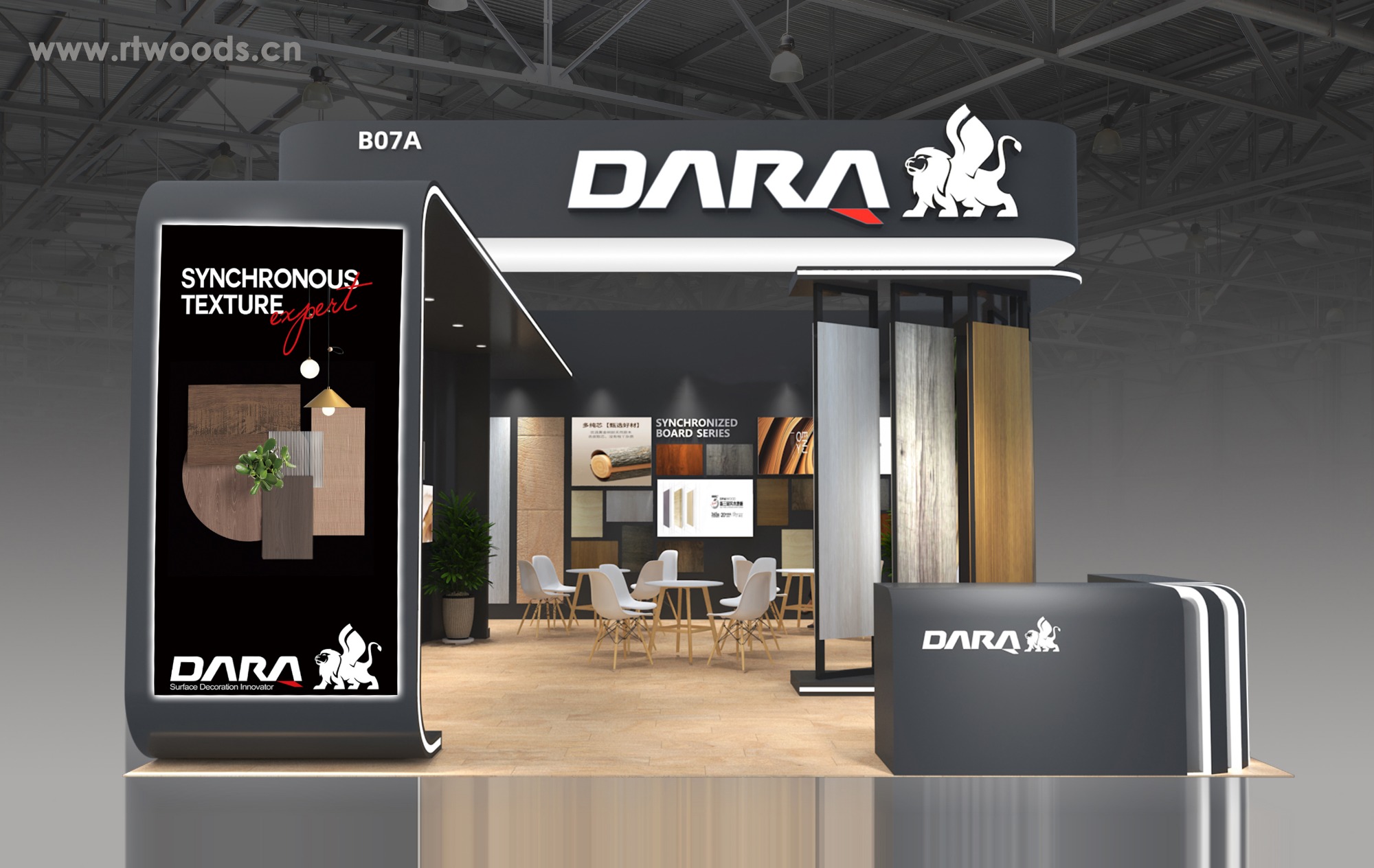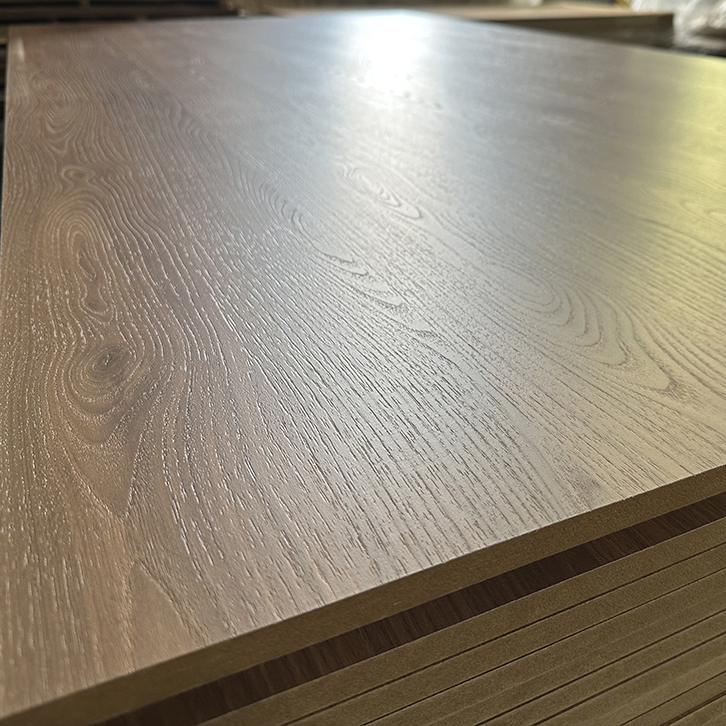Laminated veneer paper a Great Substitute for HPL
As all plywood manufacturers know, pasting melamine paper directly on plywood can cause a number of problems, such as bubbles, shining spots, peeling and so on. Therefore, HPL came into being, but the high cost of HPL production still cannot fundamentally solve the problem. Happily, Dare Wood new product LVP solves this problem perfectly. This is certainly a first.
What is HPL & LVP?
HPL LVP
Form above two pictures about HPL&LVP structure, we can easily recognize what is HPL&LVP.
For HPL: It is 60-70 percent paper, saturated with different kinds of plastic resins. The core of a sheet of HPL is made of several layers of kraft paper (similar to shopping bag paper) saturated with phenolic resin. The visual layer is a sheet melamine-impregnated decor paper with a solid color or printed design, which is topped with a protective wear layer that can also carry metallic or other inclusions for extra design flair.
For LVP: As we can see, it is melamine paper on recon veneer. The melamine paper is used to make the decorative layer which offer more than 500 designs by Ruitai Woods. Under the melamine paper is recon veneer which played an important role in avoiding bubbles when pressing under high temperature and pressure.
Invention of LVP
1.Pasting directly on plywood
Speaking of melamine paper, you may ask: How can melamine paper paste on plywood? This is certainly not an unfamiliar question for plywood manufacturers. The consensus of all manufacturers is that when you paste melamine paper directly on plywood, it will be a series of problems such as bubbles, shining spots and peeling.
By means of the invention of LVP new structure, now Ruitai woods solve the problem perfectly. It will not be a problem if you choose LVP to paste on plywood, meanwhile you can get colorful designs and save lots cost. How could you not say “Kill two birds with one stone!” ?
2.Special Synchronized surface designs
Synchronized designs means the texture on LVP surface you can get the real feeling in touch and visual. If we want to produce the synchronized, it must used the customized plate to paste. Every single designs needs one matched plate to produce.
Where is LVP used?
LVP can paste directly on plywood, MDF and chipboard, it has widely used in our life.
- Commercial and residential cabinet casework, doors and drawer fronts – offices, hotels, healthcare
- Worktops, tabletops, kitchen counters
- Retail displays, transaction counters, shelves, walls
- Architectural wall panels, elevator cab wall panels
- Signage and branded surfaces (with digitally printed and silk-screened designs)
- Laminate flooring
- Applications where you want a design that’s not available in any other material.
Why we choose LVP?
- Paste directly on plywood
- Less cost
- Anti-Scratch
- Strong durability wear
- Water and moisture resistant
- Special cores may be specified for moisture and fire resistance
To sum up, LVP can help plywood manufacturers to gain high quality products, reduce redundant production steps, get more leading designs under the condition of reducing production cost. So how would you choose?






 From China to Dubai: A Dialogue Between Wood and the World
From China to Dubai: A Dialogue Between Wood and the World
 Explore Innovation and New Synchronized Design at the 2025 Dubai International Exhibition!
Explore Innovation and New Synchronized Design at the 2025 Dubai International Exhibition!
 The advantages of synchronized melamine panels
The advantages of synchronized melamine panels
 New product: Melamine recon veneer plywood --- The new solutions for the plywood and block board decorative surface
New product: Melamine recon veneer plywood --- The new solutions for the plywood and block board decorative surface